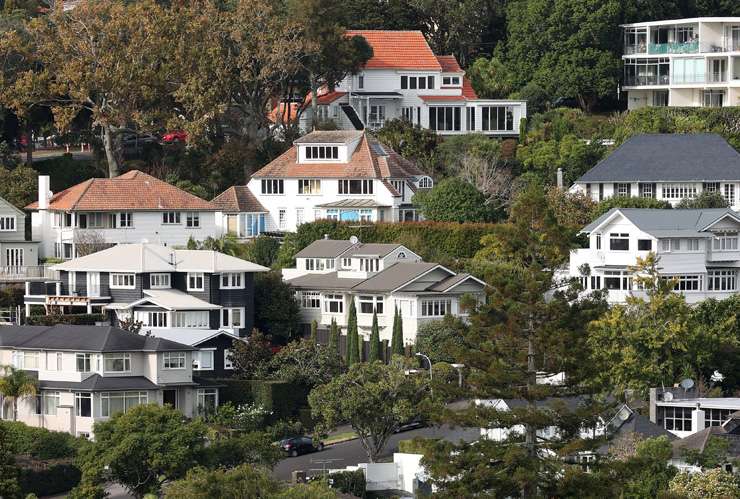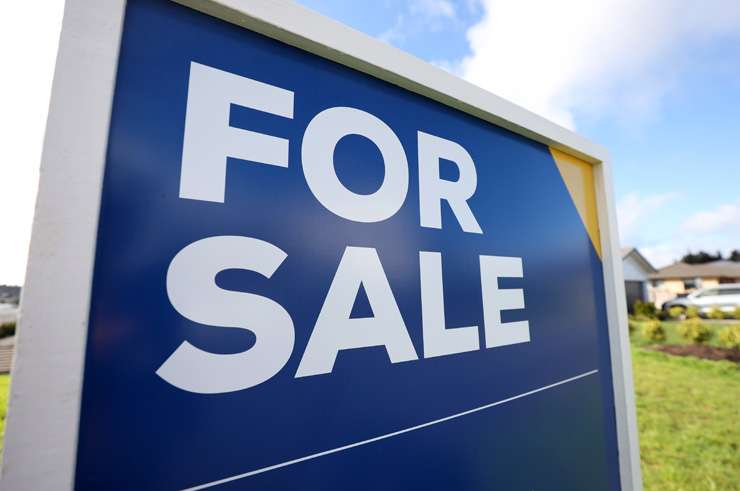A falling housing market is great timing for aspirational buyers wanting to move to a better street, a nicer suburb or a bigger house in the same neighbourhood, experts say.
But even with house prices down trading up still comes with warnings, especially around the importance of ensuring finance is sorted because there are some expensive pitfalls if things go wrong.
There are pros and cons in any market, says Robyn Ellson, from Auckland’s Ray White Mt Eden, and the current market is much more settled than two years ago.
A steadier market is a better one for people who have a defined wish list for their next property to make a move in.
Start your property search
“You don't have values running away from you, which is essentially what we've had over the last two years coming out of March 2020 and that lockdown,” she says.
A steady market means people can more reliably know what their own house is worth, and also what other properties are worth.
People need to get an up to date appraisal then do what they need to do to make the house saleable because the market is also pickier, but Ellson says properties are still selling well in Auckland and that there are usually multiple interested parties.
“Getting the finance is more of the issue but once you have ascertained that you can get finance, even if it's conditional on sale, get a real estate agent in to give you a really good understanding of what your home is worth.”
Ellson sees aspirational buyers from all over the city, saying sometimes they are people jumping from one suburb to the next, such as from Avondale to Kingsland.
“There's always a lot of movement in the areas that we work in because they are desirable city fringe neighbourhoods where people want to live.”

Houses in Remuera, Auckland. The suburb is highly prized by aspirational buyers. Photo / Fiona Goodall
Last year, when interest rates were low, it wasn’t uncommon to come across buyers jumping $1m up but the price of money has changed so those big jumps are now rarer, she says.
Anyone looking to make a big leap up financially needs to talk to a financial adviser to be confident they will be okay, she says.
Ray White’s Steve Koerber sells in Remuera, an Auckland suburb which always has buyers itching to break in.
He says now is the time for people to make their move, saying a $1m jump from a $4.5m property to a $5.5m property has been in part driven by the impact of the pandemic.
“They've gone a bit stir crazy at home, they've realised they need extra office space, extra bedrooms and that $1m, for example, will serve them right for the rest of their family life,” he says.
“I'm seeing a lot of that. I had a conversation with a seller who's about to come to market and they said, ‘Gosh, during lockdown this was a great house because we had a desk there and a desk there and a desk there.”.
Koerber says most of his buyers are coming from nearby suburbs like Grey Lynn, Sandringham, Point Chevalier, Mt Eden and Epsom, with a lot of those people wanting to move across for the schooling (much of Remuera is in the prized double Grammar zone).
But to buy a home that might sell for $2m in Sandringham will cost $3m minimum in Remuera, he says.
Kim Lyons, owner of First Rate Mortgages, says there are pros for aspirational buyers in the current market.
“The market has obviously slowed down and less properties are being sold by auction so that does make it easier for people to at least go and make an offer on a property rather than having to stick their hand up and an auction room.”
But interest rates are up so people who are looking to trade up will typically have additional debt, and bank servicing rates are in the high sevens now, he says.

A "for sale" sign outside a home in central Auckland. Steadiness in the market has given buyers room to think. Photo / Fiona Goodall
“It's putting a lot of pressure on and we are getting a number of inquiries of ‘hey, look, we want to do this, that and the other but my current bank says I'm not earning enough’ and these are people who have been very successful, had an excellent loan history and clean credit but it's just the higher testing rates.”
One of the issues brokers see when people trade up is the need for expensive bridging finance when their own home fails to sell in time – but Lyons says unless there’s an unconditional sale on the property it’s “very, very hard” to get bridging finance from a bank.
“No bank wants to be caught holding their existing home and their new home and their debt level has doubled with the rising interest rates and a falling property market maybe. It’s way outside the Responsible Lending Code.”
When people are turned down by a bank they will often go to second tier lenders, which usually means even higher rates and there can be fees attached as well
“You don't want to find you've got millions of dollars of debt because you haven't been able to sell your home and you’re caught in a short-term bridging situation.”
Another issue is sometimes people are forced into selling their existing home quickly because they want to settle on a new house, but that means they have to drop their price, and at other times people hold unrealistic expectations for what their property will sell for.
“They think ‘I'll get $1.5m for my home’ but the actual true market value is one and a quarter million.”
Another problem brokers are seeing is people who believe they have sold their homes except the sale falls through and in the intervening time the value of their property has fallen, sometimes substantially, from $2.5m to $2m.
“That’s only an example but half a million dollars is a lot of money to miss out on and it totally changes your ability to trade up - you're lucky to break even or you might end up trading down.”














































































